This briefing comes from one of our New Zealand team members who looked at discourse about the knife attack at Westfield Bondi Junction from Kiwi and Australian social media accounts.
By Josh Korpus
Further to our briefing back on 14 April about the knife attack at Westfield Bondi Junction, our New Zealand team have also looked at discourse about the incident on New Zealand and Australian social media. We observed several forms of antisemitism in this discourse, including:
- Dehumanisation of Jews
- Promotion of traditional antisemitism such as blood libel claims
- Jews being held collectively responsible for the acts committed by individuals, and
- Jews being held collectively responsible for Israel’s actions
For the Jewish community in New Zealand, it was particularly concerning to see malicious attempts to falsely identify the attacker as Jewish. In 2019 after the Christchurch Mosque Attack that saw 51 innocent Muslim worshipers murdered in New Zealand, Ahmed Bhamji, the chairman of the Mt Roskill Masjid E Umar, gave a speech at a rally organised by Love Aotearoa Hate Racism in which he claimed that the money for the attack came from the “Mossad” and “Zionist business”. Juliet Moses from the New Zealand Jewish Council said disinformation and antisemitic conspiracy theories “put the Jewish community at risk, at a time of heightened security concerns”.
In Australia, we have seen the consequences of such antisemitic disinformation, such as when Jews were falsely blamed for the firebombing of Burgertory in Caulfield in November 2023. This disinformation encouraged protesters to swarm the Melbourne suburb of Caulfield, an area in which many Australian Jews live. The result was the creation of fear in the Jewish community and the evacuation of two synagogues in the middle of Sabbath prayer services.
Despite the claims of Bhamji being baseless and false, they were offensive and harmful to New Zealand’s Jewish community. For Jews in New Zealand, it has been concerning to have seen similar antisemitic disinformation resurface from New Zealand-based social media users.
Example 1: X / Twitter – New Zealand
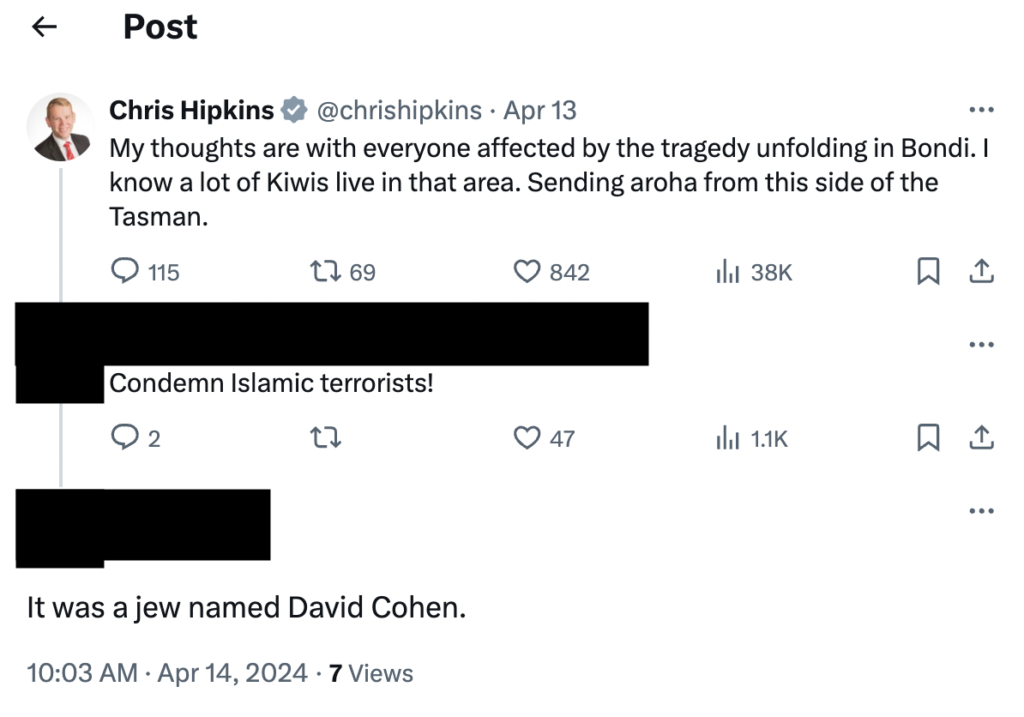
In this post on X we can see redacted users replying to a tweet from Hon Chris Hipkins, the former Prime Minister of New Zealand sending aroha (love) to the victims and the families of the attack. The first reply engages in Islamophobia by falsely blaming the attack on “Islamic terrorists”. The next reply then falsely accuses a Jew as the perpetrator, but then proceeds to use an alternative name to ‘Benjamin Cohen’, the false identity of the perpetrator trending online, to ‘David Cohen.’ Not only does the user falsely, on baseless claims hold ‘the Jew’ accountable for the actions of the perpetrator, but too, asserts that it could be any Jew responsible, Benjamin or David, thus purporting dehumanising language.
Example 2: X – Australia
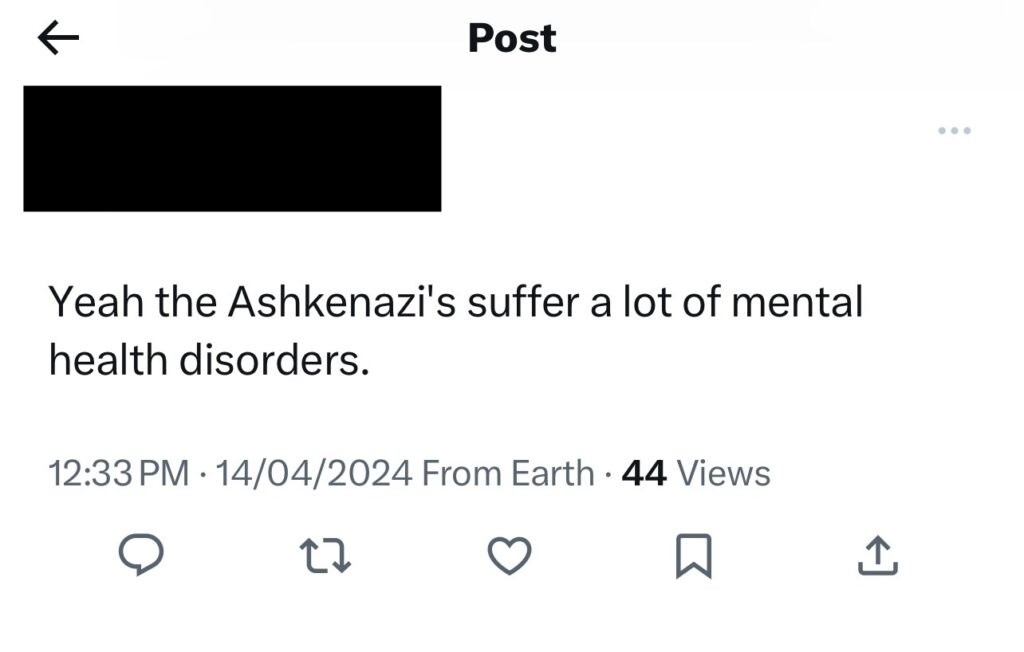
This post on X sees a user adamant that the attacker was indeed Jewish, after the UNSW police had released the official attackers named as Joel Cauchi. Despite a clear announcement, that the attacker was a non-Jewish individual with mental health issues, the user continues to perpetuate the idea that a Jew was responsible for the attack, for they suffer mental health disorders too.
Example 3: X / Twitter – New Zealand

In this post on X we can see a user commenting that the ‘stabber’, or perpetrator of the attack, was a Jew. However, the user’s deliberate use of the word ‘kike’, a derogatory slur against Jews is not only deeply offensive and concerning, but also dehumanising. The use of this slur perpetuates negative connotations on wider Jewry, amplifying concerns that there is serious discontent with Jews in New Zealand society and present conspiracy that Jews are responsible for the acts committed by the attacker.
Example 4: X – Australia
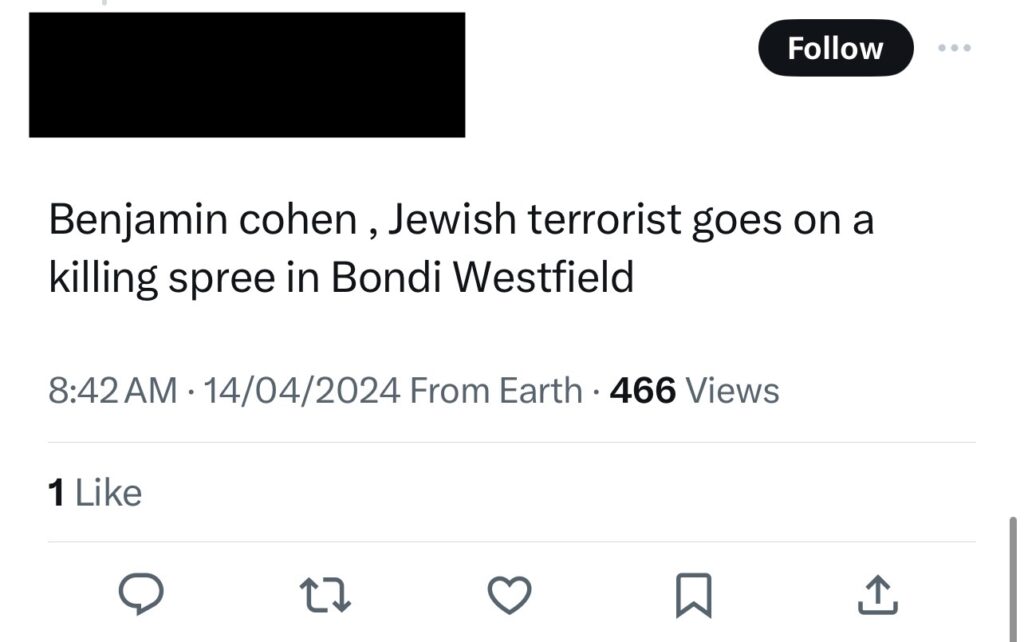
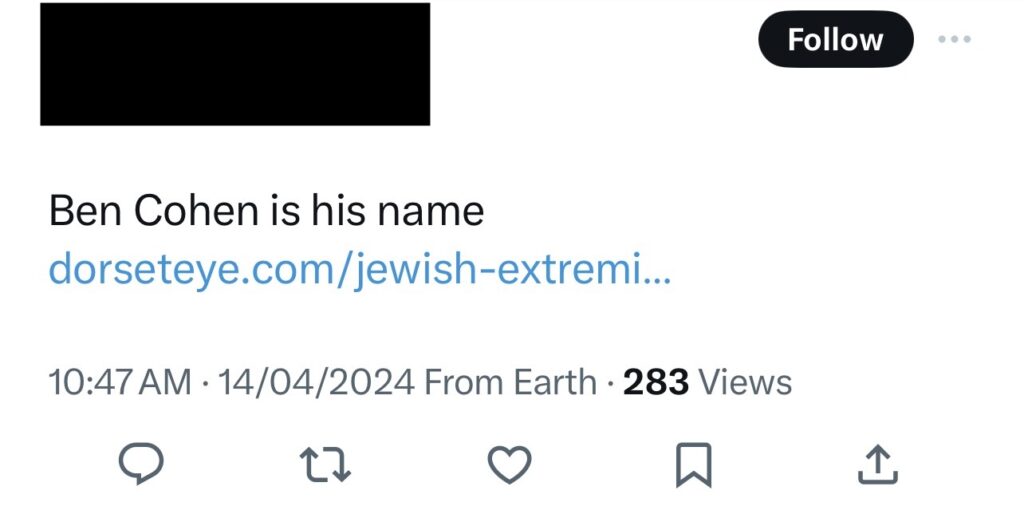
In these posts on X we can see the redacted user falsely accusing a Jew, ‘Benjamin/Ben Cohen’ as the perpetrator of the Westfield Sydney Bondi Junction Attack. In the first post, he is described as a “Jewish terrorist”. Even if the perpetrator was Jewish, in the context of this attack, which was motivated by mental illness, namely schizophrenia, and was not necessarily ideologically driven, the religious and/or ethnic identity of the perpetrator is irrelevant.
Example 5: Facebook – Australia
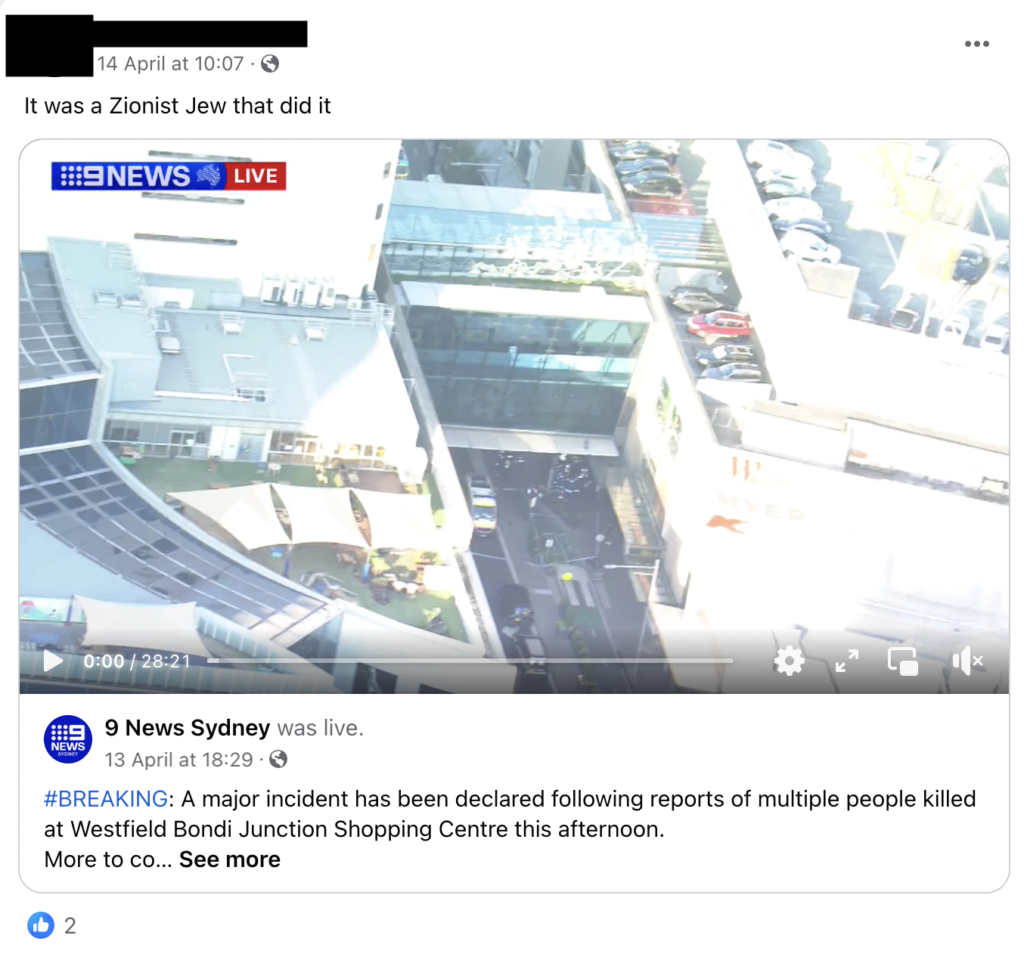
In this post on X we can see the redacted user falsely accuses a Jew, as the perpetrator. Further, the post frames Zionism, or individuals that are ‘Zionist’ in a derogatory form. These terms not only hold Jews accountable for the actions of another individual, but assert strong dehumanising language and misuse of the word Zionist.
Example 6: Facebook – Australia
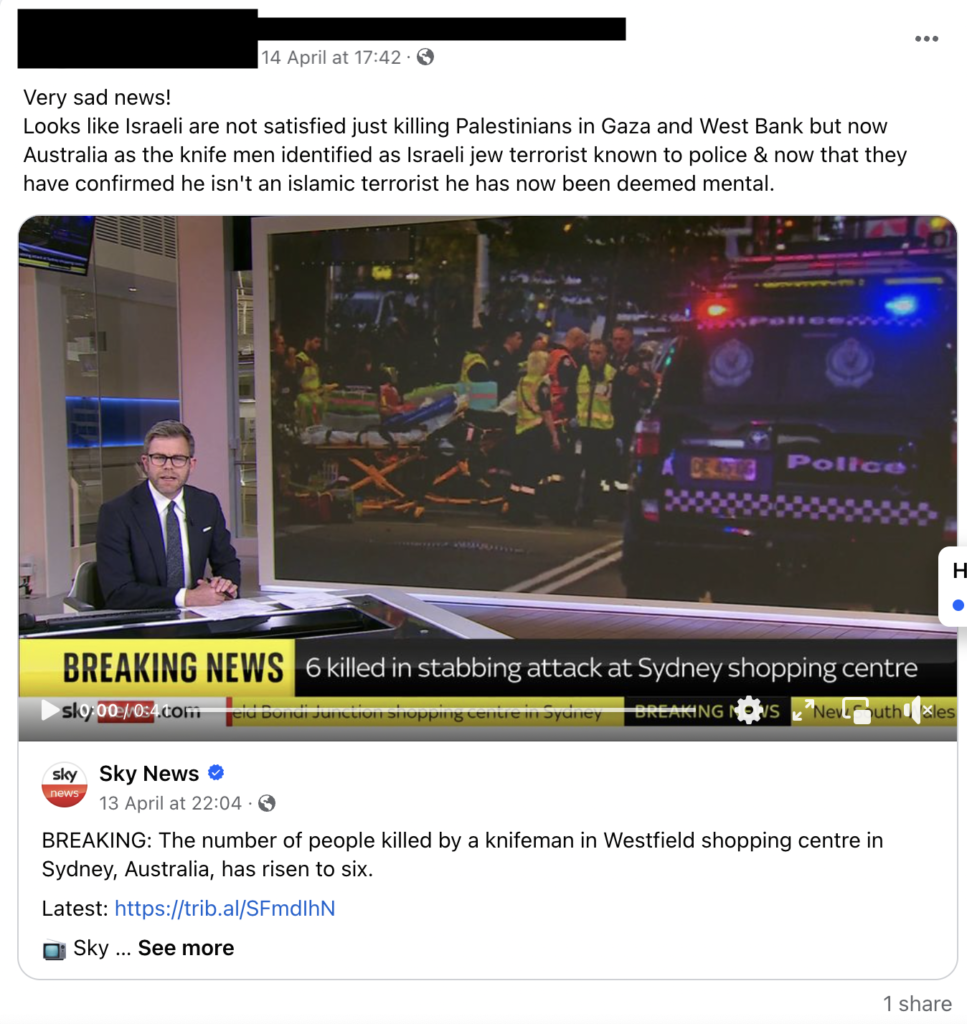
In this post on X we can see the redacted user falsely accusing a Jew of being the perpetrator of the attack. Further, the post perpetuates the notion that Jews are not ‘satisfied’ enough by the death of Palestinians in the present conflict in the West Bank and Gaza. Hence the user purports, to ‘satisfy’ Jews, they must extrapolate Israel’s actions and replicate innocent deaths outside of Israel. These terms not only hold Jews accountable for the actions of another individual/Israel, but assert strong dehumanising language.
